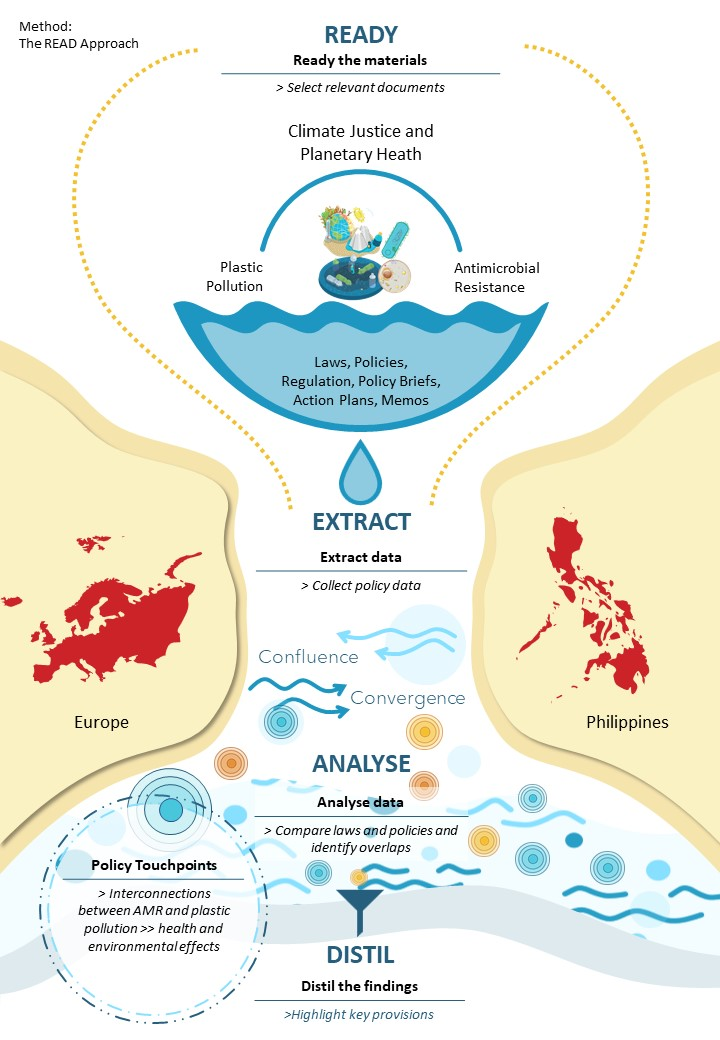Address
Heidelberg University
Im Neuenheimer Feld 205, 4/325
69120 Heidelberg
Germany
Contact
Uliana Kachnova
uliana.kachnova@uni-heidelberg.de

Antimicrobial resistance (AMR) and plastic pollution are converging global crises that threaten both human health and environmental sustainability...

16.07.2025 – DOI:10.17605/OSF.IO/3TKN2
Authors
Rupal Shah-Rohlfs¹, Jeniffer Landicho², Vivienne Endoma¹, Bianca Joyce Sornillo², Marina Treskova⁴,⁵, Joacim Rocklöv⁴,⁵, Shannon A. McMahon¹,³, Mark Donald C. Reñosa¹,²
¹ Heidelberg Institute of Global Health, University Hospital and Faculty of Medicine, University of Heidelberg, Heidelberg, Germany
² Department of Epidemiology and Biostatistics, Research Institute for Tropical Medicine – Department of Health, Manila, Philippines
³ International Health Department, Johns Hopkins Bloomberg School of Public Health, Baltimore, MD, USA
⁴ Department of Epidemiology and Global Health, Umeå University, Umeå, Sweden
⁵ Heidelberg Institute of Global Health and Interdisciplinary Centre for Scientific Computing, University of Heidelberg, Heidelberg, Germany
Abstract
Introduction: Antimicrobial resistance (AMR) and plastic pollution are converging global crises that threaten both human health and environmental sustainability. Despite the growing recognition of thesechallenges, few legislative and policy frameworks acknowledge the complex interplay between antibiotic misuse and environmental plastic contamination. This protocol seeks to bridge that gap by critically examining policies in the Philippines and Europe, focusing on those that target antibiotic misuse and plastic pollution in human and animal health.
Methods: A document analysis will be employed to systematically review relevant legislative and policy frameworks. We will retrieve laws, regulations, and policy documents from official databases, government websites, and other sources using broad inclusion criteria. The extraction process and analysis will be guided by the READ approach – Ready, Extract, Analyse, Distil – which will ensure a thorough examination of how these documents address the dual challenges of AMR and plastic pollution. Particular attention will be paid to identifying policy gaps, overlaps, and synergies that may affect the overall effectiveness and coherence of current governmental responses.
Discussion: The findings are expected to provide a robust evidence base to inform the development of integrated policies at the nexus of global public health and environmental sustainability. By mapping existing policies and pinpointing areas for reforms, this review will contribute to a more coherent intersectoral strategy. Ultimately, the study aims to support both community-based and governmental interventions, advancing the global dialogue on how to combat the intertwined threats of AMR and plastic pollution.